UNDP Defies Health Ministry on Fake Certificate Holder; Finance Ministry Prepares Action

Kathmandu, Nepal — The United Nations Development Programme (UNDP) in Nepal is facing sharp criticism and potential disciplinary action from the government of Nepal for allegedly defying a directive from the Ministry of Health and Population (MoHP) regarding the controversial appointment of an individual with a proven fake medical certificate. The incident raises serious questions about the integrity and transparency of UN agencies operating in the country, often lauded for their rigorous selection processes.
Gajananda Prakash Bhandari, whose Intermediate Science Certificate (ISC) was found to be forged, was appointed as a “Programme and M&E Specialist” within the UNDP-managed Global Fund Project. This appointment has drawn the ire of the Ministry of Health, the Commission for the Investigation of Abuse of Authority (CIAA), and now the Ministry of Finance, which is preparing to take action.
Health Secretary Dr. Bikash Devkota confirmed that he had directed the UNDP to take immediate action against Bhandari after his ISC certificate was identified as being registered under another individual’s name.
“If this is true, take immediate action; if not, provide proof with evidence,” Secretary Devkota stated, having summoned UNDP officials for a clarification. However, according to the Health Ministry, the UNDP has thus far ignored this directive.
Bhandari’s history of controversy dates back to 2015, when Nepal Police’s Central Investigation Bureau (CIB) exposed his forged Bihar Intermediate Education Council, Patna, certificate during “Operation Quack.” The certificate, bearing roll number 157, was actually registered to Arvind Srivastava of India. Despite this revelation, Bhandari had used the fake credential to pursue an MBBS degree from Dagestan State Medical Academy in Russia and later an MD in Community Health and Preventive Medicine from BP Koirala Institute of Health Sciences in 2005. His medical degree and registration with the Nepal Medical Council were eventually revoked in 2016 following the CIB investigation.
The Global Fund project, which provided nearly 6 billion rupees in grants to the government for tuberculosis, malaria, and HIV control, appointed both the government and UNDP as joint Principal Recipients (PRs) after the government encountered difficulties in operating the project independently. Critics now point out the irony of UNDP entrusting responsibilities within government-funded programs to an individual with a discredited past.
Secretary Devkota also raised the issue with Global Fund representatives, who reportedly deflected responsibility, stating, “It is the UNDP’s responsibility to respond on the appointment of a wrong person.”
In the meantime, the Ministry of Finance has now escalated its concern, with a senior official indicating that discussions have been held and disciplinary action is imminent.
“No matter what institution it is, a controversial person cannot be given responsibility in programmes funded by the government’s budget,” the official stated, adding that the ministry also objects to the hiring of expensive foreign staff when Nepali experts are available.
The unfolding scandal casts a shadow over the “intense international competition, transparency, and high academic qualifications” that UN agencies often claim as their hallmarks in employee selection, highlighting a perceived lapse in due diligence and accountability within the UNDP’s operations in Nepal.
Suspicions have also been raised about the involvement of Bhim Prasad Sapkota, Head of the Coordination Division at the Health Ministry, who has reportedly remained unreachable when contacted, further fueling speculation of complicity in protecting Bhandari.
क्याटेगोरी : English, अन्तर्राष्ट्रिय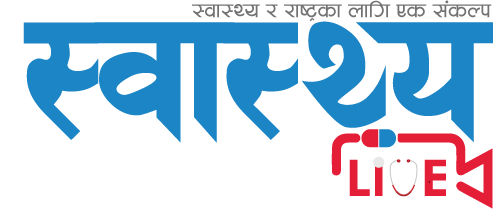
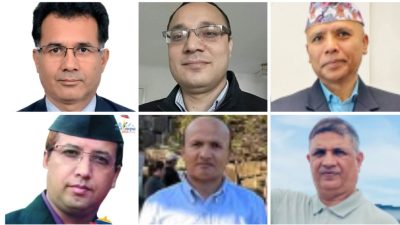

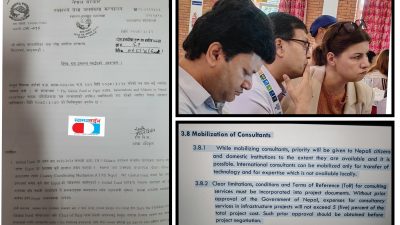
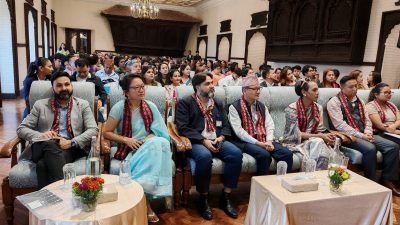
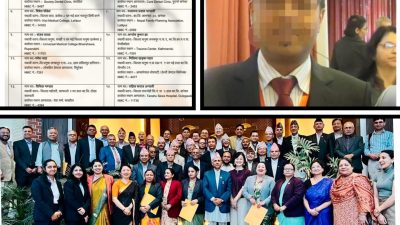

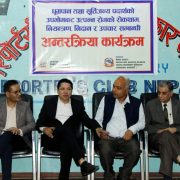
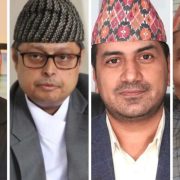


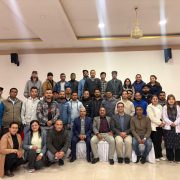

तपाईको प्रतिक्रिया दिनुहोस